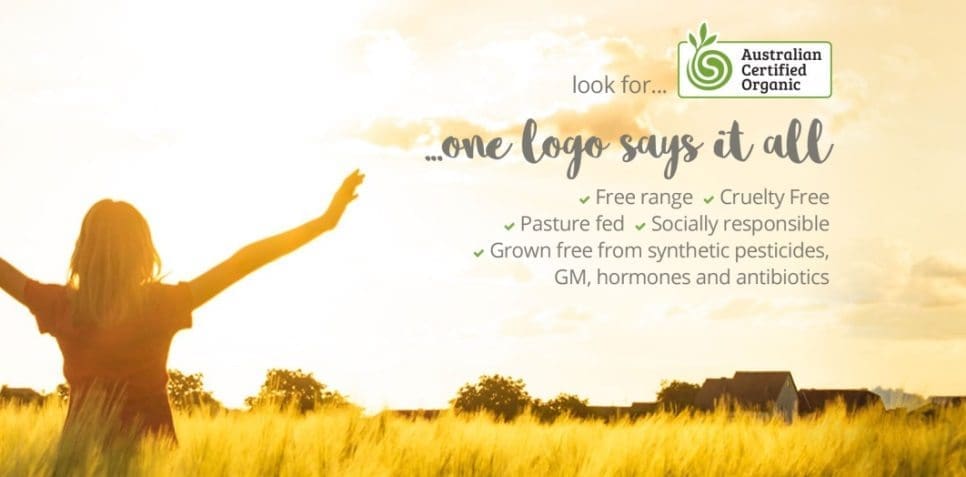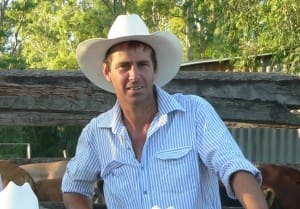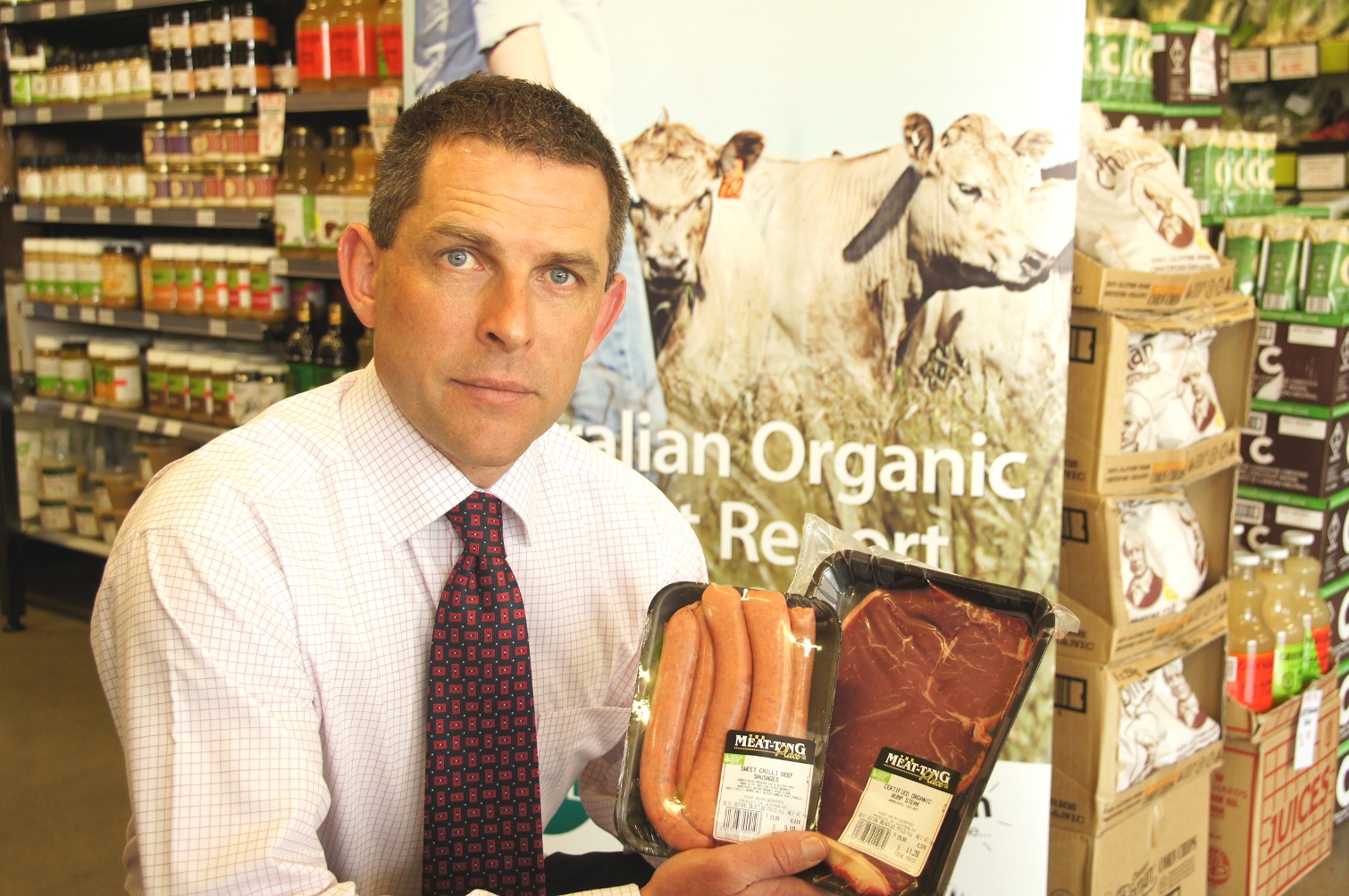
IS THE organic beef sector unfairly claiming the ‘moral high ground’ over conventional beef producers in the area of animal welfare?
A report in the UK meat trade press this week, noting a rise in the September quarter in organic meat sales, apportioned the change, in part to “growing shopper concerns around animal welfare.”
Such references are no longer uncommon here and overseas, and it suggests that the organic movement has managed to convince consumers that organic systems, and the people that manage them, are somehow inherently more ‘humane’ towards animals than conventional meat producers.
A quick scan of the internet shows that many Certified Organic industry stakeholders are enthusiastically supporting the notion that Organic meat ‘must be’ better than conventional equivalent meat in areas like animal welfare.
The home page of the Australian Organic website, aligned with the nation’s largest organic certifying group Australian Certified Organic, somewhat bravely uses the term “cruelty free” (see image above) to describe its products.
Readers have contacted Beef Central recently claiming the organic movement’s vigorous use of terms like ‘cruelty free’, ‘ethical’ (example: Cleavers Organic Meats) and ‘humanely raised’ inevitably imply that conventional beef cattle are managed using some degree of cruelty, a lack of ethics, and in an ‘inhumane’ fashion.
Organic industry contacts spoken to this week defended the use of such terms, saying they were directed primarily at issues like exclusion of ‘live exports’ and ‘grainfed/confined’ beef production. That somewhat narrow, selective use of the term animal welfare ignores the fact that there are countless other ways that welfare can be compromised. The industry also raised the use of hormonal growth promotants as a welfare issue, but were unable to provide any evidence to support a connection between HGP and animal welfare compromises.
The consumer is clearly taking a much more liberal interpretation of the organic meat industry’s messaging, including the notion that organic producers themselves must, by nature, be more ‘humane’ than other producers.
Terms like ‘cruelty free’, and ‘humanely raised’ as they are perceived by a typical consumer represent a massive, and largely undefendable claim. There is not one shred of evidence to suggest that organic beef producers, as a group or individually, are any ‘kinder or more humane’ towards their animals than others.
There is as much risk of a Certified Organic beef producer treating an animal unnecessarily harshly in the crush as any other producer, but according to the ACO’s definition of ‘humane’, that does not count.
As the organic movement openly conceded in discussions with Beef Central yesterday, organics is as much about perception as it is about reality and provable facts, and apparently that means if it can convince consumers that organic meat carries impeccable animal welfare credentials (ie ‘cruelty-free’), at the expense of other meat producers, then so be it.
But are such claims defendable, and do they potentially damage the reputation of everyday beef?
Scrutiny of Australian Certified Organic’s ‘Australian Organic Standards’ show no specific references or suggestions to treatment of animals ‘humanely’. While the code covers a lot of ground, it contains absolutely nothing in the way of management practices which are not routinely applied by many, if not most conventional grassfed beef producers.
Here is the full document for those interested in having a look. Relevant sections to beef include Section 5: Livestock Production, covering livestock management, extensive rangeland production; and Section 6: Processing & Preparation.
Cattle Council view
Beef Central asked Cattle Council of Australia president Howard Smith about his views over such raising claims.

CCA president Howard Smith.
“Cattle Council would not support the use of such claims, if there is any risk of inference to consumers that other conventional producers are inherently less humane to their stock,” Mr Smith said.
“We are all in favour of embracing diversity in the beef industry in terms of different production systems and raising claims that appeal to consumers, and organics is a part of that.
“Choice is a good thing for the consumer, but it must be done without any risk of unfairly and inaccurately damaging the credibility of other sectors of the industry. We support science-based claims, and certainly nothing that cannot be substantiated.”
Another grassfed beef producer who contacted Beef Central on the topic argued that certified organic beef production systems being practised in ‘inappropriate’ parts of Queensland were in fact contributing to greater animal welfare stress on organic cattle – not less.
He was referring to coastal areas where external parasite challenge from buffalo fly and tick can be relentless in summer, and infinitely harder to manager without chemical control.
“Talk about animal welfare – I personally have huge concerns about organic beef production in such areas,” he said. “So much of the coastal country is so deficient, yet there is no nutrient support for stock. They want to be very careful about making warm and fuzzy, idyllic claims about animal welfare,” he said.
CCA’s Howard Smith said there had been several recent cases (not specifically organic) of raising claims around animal welfare, which had raised concerns within CCA and the industry, because of the unfair implication that ‘everybody else must be doing something wrong.’
“Cruelty-free is a very large claim, and impossible to defend,” he said.
Organics industry defends its actions
The Cleavers Organic website makes references to its beef suppliers “taking a whole-system approach to their farming, putting an emphasis on animal welfare, sustainability and ecologically sound practices.”
“Our Organic farms undergo rigorous external annual audits to ensure that organic certification standards are met. Our customers can trust in our product,” the company says, soothingly.

Australian Certified Organic chairman Andrew Monk
Beef Central asked Australian Certified Organic chairman Andrew Monk about his sector’s use of such terms in livestock production.
He directed the emphasis in animal welfare claims towards non-use of intensive feeding systems (ie feedlots) and lack of support for live export, but conceded that they might be interpreted by consumers more broadly.
“Terms like ‘cruelty-free’ are more directed at the organic cosmetics industry, and the ban of use of animals for testing of such products,” he said.
“However I get, and hear, that the broader industry may have some concerns over organic claims around animal welfare,” Dr Monk said.
“Organic is tapping into that broader set of (consumer) perceptions and some expectations. At high level, there are two things that it does prohibit – one is live export, and the other is lotfeeding.”
“That’s what the organic standard prohibits. But you’ve hit the nail on the head – grassfed beef, generally, is definitely getting closer, in many capacities, particularly in Australia.”
“If the comparison is just focussed on organic beef versus grassfed, then we would accept that grassfed is now a better, more ethical domain.”
Dr Monk said there was a similar issue with free range versus organic chicken.
“There is consumer perception, and then there is animal realities where there is still an argument over which is the most welfare-oriented. But there is definitely strong consumer perception and demand for higher welfare.”
“Organic is always trying to set a standard to meet a niche consumer expectation that is quite extreme, at times. It’s a high-value product which is demanding to produce. We believe there is a case that organic is in fact ‘humanely raised’ and ‘ethical’.”
“But equally we recognise that all livestock producers, and perhaps especially the grassfed industry, have realised they have had to become more sensitised than ever to consumer perceptions. And animal welfare is part of that.”
“That’s probably what Australia leads the world in tapping into those higher value global markets like certified organic and certified grassfed.”
“The grassfed guys could see this animal welfare claim issue two ways: as an implicit threat, and be angry about it; or as an opportunity to tap into the higher value-add opportunity by moving more vigorously into animal welfare claims,” Dr Monk said.

Be more transparent and let the consumer decide for themselves, then you don’t need to argue about what words accurately represent your welfare standards. Instead the industry lobbies for ag-gag laws so they can keep realities hidden and shape a crafted narrative to feed to the consumer.
Paperwork , audits , certification and declarations actually mean everything.
Whole world economics rely on this system .
Laws Courts Parliament Government Taxation Everything.
The integrity of Australian Beef Producers is extremely high.
Australian beef producers are well educated on traceability and welfare.
The systems in place work very well .
No one claims perfection .
Very high levels are being achieved in this industry, improvement is always welcomed cheap shots are not.
Mr Scholes wrote “Organic producers in Australia are audited and certified and animal welfare is addressed in this process.”
Actually audits and paperwork do not mean anything as paperwork can easily be either omitted or fabricated. Everything relies on honesty if there is no full time supervision by an independent authority. Rural farms being very large many things can be hidden away. And this is the same for everything where you have self managed systems. There is nothing to say an organic producer might buy some insecticide on the sly and “forget” the animals were done.
Or way up in some far flung paddock where auditors will never venture a pump breaks down and some cattle die of thirst and it is covered up. On paper it might be put down to an outbreak of three day sickness, or botulism, or just plain missing cattle.
Paperwork is only as good as the honesty of the person filling it out, and while I expect most people are honest, relying on certification and training and paperwork is a very weak link in a chain, especially when money and livelihoods is involved.
As a long term producer of organic beef I find elements of this article and some of the comments to be unnecessary and disappointing.
I am not sure why Beef Central has chosen to take this angle on this article , the opportunity to discuss animal welfare issues facing the Beef industry should not be divisive.
Animal welfare is a concern to many consumers and customers throughout the world .
Australian organic processors have recognised that consumers want to be reassured that Australian organic beef is produced in an ethical way and that welfare concerns have been addressed.
To make these claims to satisfy the customers expectations is not unreasonable.
We have grown our business with the support of our processor (Arcadian) through very challenging times.
They have backed their suppliers and maintained premiums by promoting our product throughout the world markets.
The end customer, the consumer, has certain expectations.
The claims made are not aimed at conventional production systems.
Organic producers in Australia are audited and certified and animal welfare is addressed in this process.
Some markets require stricter programs including GAP certification.
To promote and advertise our product certain claims are made to satisfy consumers requirements and these claims are backed up by the certification.
All cattle production systems face welfare challenges. Organic certification addresses this in the standard. As a producer we document these issues and we are scrutinised during the audit process.
As a long term producer in CWQ we manage our herd very similarly to our conventional neighbours.
When an animal is recognised to be unwell it can be removed from the system and treated conventionally and quarantined.
These animals can recover and then be sold into conventional markets.
During recent (unprecedented) drought many organically produced cattle were sold into conventional markets to avoid welfare issues.
Conventional grass fed producers faced the same challenges.
Supplementation is allowed in most organic programs and certified products are readily available .
Humans and animals throughout the world frequently face welfare issues.
Most people suffer from extreme climatic variables or illness and injury at some stage in life. Sometimes we are uncomfortable or stressed.
As managers of our cattle herds we need to minimise these periods as much as practicably possible.
Our customers will increasingly require us to document our efforts and prove our claims.
We should support the businesses that are promoting our product and not attack claims that are backed up by solid audited programs.
As the question is asked by the consumer or customer the producer must be allowed to answer.
The claim, Yes this piece of meat was produced ethically under a certified program , is not an attempt to take high moral ground.
Iain Scholes, Blackall
Supplementing small amounts of grain to young growing animals appears to improve growth rates, lower stocking rates and improve pasture. Doing this with organic grains appears to be very expensive – but if the customer wants to be, and is indeed king – there will be an added cost. A trip into the dry outback indicates that it is not all clean and green, or beer and skittles in times of drought. Trying maintain an organic animal production system in drought conditions will ultimately be to the account of the consumer – because it appears to be a rather low carbon velocity system.
sorry David I meant Austmeat not MLA
Graeme, I am concerned that you believe MLA is an auditing body. I would also question the belief that there are free rides to happy customers in this industry.
The unwinnable war will be the one that sees the consumer line up at the alternative animal protein counter because beef brands have a marketing pitch that includes the denigration of other beef production systems!
So do buyers of Organic beef use modern medicine’s when they get sick?
Has anybody raised the issue of the ‘two-speed’ organic beef industry? Significant volumes of ‘Certified Organic’ beef produced in Australia and overseas come from cull dairy cows, run in Certified Organic herds purely for milk production. Boner and canner cows do not equal prime steer, yet the premium remains, and the consumer knows no better.
I’ve seen buffalo fly so thick on un-treated organic cattle in coastal central Queensland that you could not tell what the hide colour was. Cruelty-free? Humanely treated? Come on.
Jon and Howard
as a beef producer who has enjoyed the premiums available from both organics and animal welfare certification I think you are both engaging in dangerous journalism .
We have been able with MLA approved audit’s to obtain the highest available certification for both organics and animal welfare (G.A.P.) without changing a single thing in our land or animal management. Surely that proves that most beef producers are in fact doing the right thing. It is just that we and several other producers are prepared to make the time and carry the expense to do annual audits because the wary customer wants it. Remember The Roo In The Stew.
The way I see it our industry has two choices
1 Hang onto our shirt tails and get a free ride to happy customers
2 Take notice of pragmatic postulation’s such as this article and get ready for the next unwinnable war.
Thanks for your comment, Graeme. We’d like to point out that there is no suggestion that CCA president Howard Smith was ‘engaging in dangerous journalism,’ as you state. Howard was simply contacted by Beef Central for comment on an industry issue. As an aside, we absolutely agree with you that most beef producers are ‘doing the right thing’ in the area of animal welfare. That was precisely the purpose of the article. Editor
I looked into going organic a few years ago until I find out that I would no longer be able to treat pink-eye or lice. I care to much about the wellbeing of my cattle to go down that road. I find it amusing that organic producers are claiming the opposite of what they are doing. When I questioned a few organic producers about the use of necessary inorganic treatments, they replied that you can use them, you just need to get an authorisation then it is fine, in other words they are allowed to raise cattle inorganically, but claim they are organic.